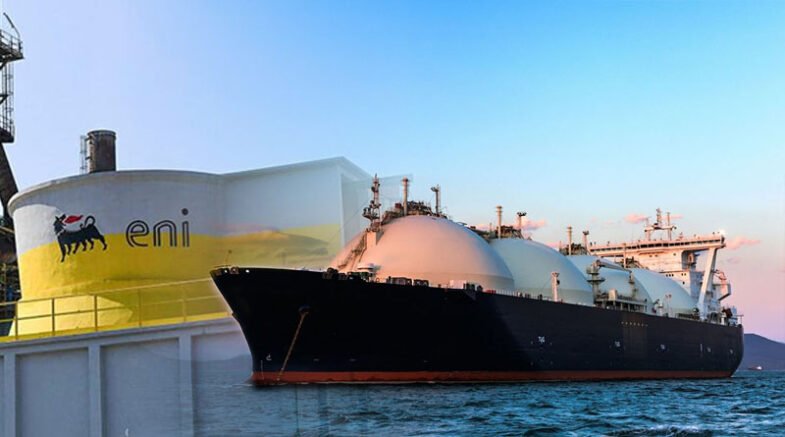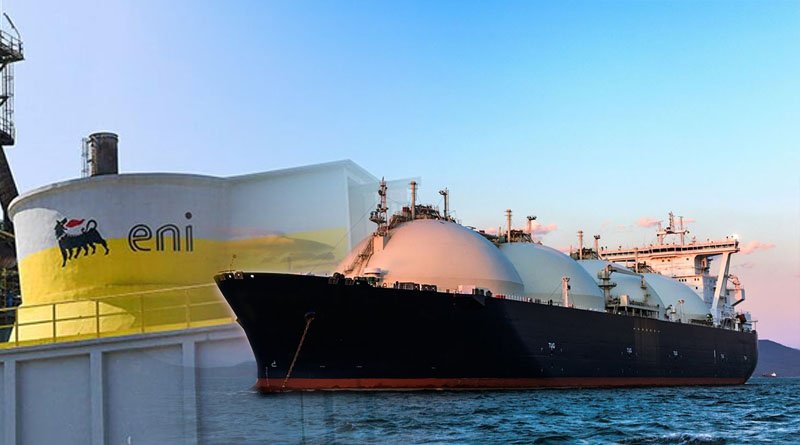From 2017 to 2032, the Italian conglomerate has a 15-year agreement to supply Pakistan with one cargo of LNG per month.

Eni (ENI.MI) said on Wednesday that a force majeure event has made it impossible to send a cargo of liquefied natural gas (LNG) to Pakistan LNG Limited in February.
From 2017 to 2032, the Italian conglomerate has a 15-year agreement to supply Pakistan with one cargo of LNG per month.
LNG is transported by specialized ships called LNG carriers, which are designed to keep the LNG at its extremely low temperature (-162°C) to prevent it from vaporizing during transport.
LNG cargo is used to transport natural gas from producing countries to consuming countries where it is used as a clean-burning fuel for power generation and other industrial use
“The February LNG delivery disruption is beyond ENI’s reasonable control and is the result of a force majeure event. “The situation benefits ENI in no way,” the company said in a statement.
“All the previous disruptions in LNG delivery suffered by ENI have been caused by the LNG supplier, who didn’t fulfil the agreed obligations.” In these cases, ENI did not profit or benefit in any way from these defaults and applied all contractual provisions to manage such disruptions.
Pakistan has struggled to obtain spot LNG cargoes due to rising global gas prices, which reached record highs last year following Russia’s invasion of Ukraine.
Pakistan LNG, a government subsidiary that purchases LNG on the international market, did not respond to a request for comment right away. According to Refinitiv data, Pakistan imported 9 billion cubic metres (bcm) of LNG last year, a decrease of nearly 20% from 11.2 bcm in 2021.
Force majeure is a legal term that refers to an event or circumstance that is beyond the parties’ control and makes it impossible or impractical for them to fulfil their contractual obligations.
Natural disasters, war, terrorism, and pandemics are examples of force majeure events. When a force majeure event occurs, the affected parties may be excused from performing their contractual obligations without breaching them.
The specific effects of a force majeure clause may differ depending on the clause’s language and the laws of the jurisdiction governing the contract.
